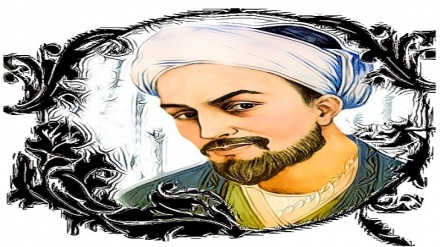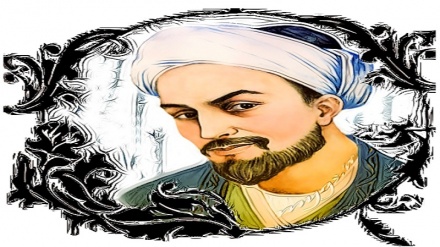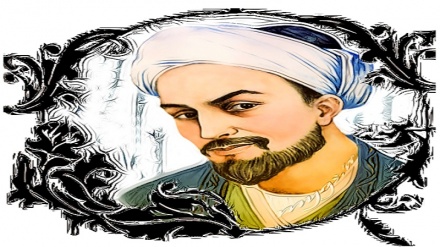Iranian Notables, Sources of Global Honor (91)
Today, we study the political thoughts of the famed Iranian mystic of 8th Century AH, Mir Seyed Ali Hamedani.
It was said that Seyed Ali Hamedani was a prominent Iranian mystic, who lived in 8th Century AH. He spent his entire life for promotion of the sacred religion of Islam, purification of soul, and education of those, interested in finding and covering the righteous path. The virtuous and scientists refer to him as Sultan al-Aarefin. His students have granted him the title of King of Hamedan, and he is popularly known as Hazrat Amir Jaan in Tajikistan.
Born in the city of Hamedan in the year 714 AH, Mir Seyed Ali Hamedani completed his preliminary studies in his hometown, attending the classes of prominent lecturers of his era and acquiring knowledge in science of Hadith, philosophy and mysticism. He was highly influenced by his lecturers in his efforts for purification of soul and attainment of spiritual elevation and growth. Later on, he was instructed by his lecturers to promote the divine religion of Islam, overseas. He continued this mission for the rest of his life, promoting the sacred religion of Islam, while also grooming many students. He was highly respected in his lifetime, and he was honored by the residents of cities of Iran, Central Asia, and India. In addition to piety, he highly excelled in science and philosophy and was a polymath, mastering the traditional and rational sciences of his era. Upon the demise of Hamedani, his children and grandchildren continued his activities and made every effort to guide people in Hamedan, Kashmir, Balkh, and a number of other regions.
Shia Ulema have made utmost efforts to promote the divine religion of Islam. Hamedani, in an effort to promote Shiasm in Kashmir, endured the hardships of several long journeys. He has been cited as saying: “I traveled three times from East to West and witnessed many astonishing developments in land and sea. In the first journey, I traveled from one city to another. In the second journey, I visited every oasis, and in the third trip I traveled from one house to another.”
Hamedani’s main goal was to promote Islam and to guide people. He left a huge impact on the people he met throughout these journeys. He promoted the sacred religion of Islam in Kashmir.
With his hard work and the efforts of his students and supporters, he managed to turn Kashmir into a strong base for Islam and to transfer the scientific knowledge from his hometown, Hamedan, to that region of the Indian Subcontinent. This showed that his mysticism did not drive him into isolation. He was a mystic who made every effort to serve people.
Some researchers opine that Hamedani was famed prior to his visit to Kashmir. It is said that he entered Kashmir at the age of 60, after several long journeys. It is also said that prior to his journey to Kashmir, he highly promoted Islam in different regions, drawing the attention of many Muslims. Nonetheless, he had many supporters in the Islamic regions and entered Kashmir as a promoter of divine religion of Islam.
Additionally, a while prior to his entry to Kashmir, Muslim rulers reigned this region, who naturally benefited from Islamic promoters for establishment and reinforcement of their rule.
One of the other reasons behind the high rate of approval and advancement of Hamedani in other regions was the spread of mysticism and the large number of mosques and monasteries in the 8th Century AH.
In addition to promotion of Islam in the Indian Subcontinent, especially in Kashmir, Hamedani also tried to promote his political views which were based on Shia teachings. His theological and religious thoughts led him to ponder and write about politics. Meanwhile, Hamedani’s high rate of approval among people, had drawn the attention of the then rulers toward him, and Hamedani tried to seize this opportunity to reform the religious, ethical, and social state of people and rulers of his era.
The political system considered by Hamedani is rooted in his theological thoughts and is more inclined toward reformist approaches. He is highly under the influence of the mystical aspect of his character and has not clearly specified his favorite political structure and system.
Instead of discussing the structural aspects of politics and ruling system, Hamedani has studied and discussed their reformation. His political thoughts have been mainly shaped by his considered reformations. Nearly in all of his political discussions, ethics and religion play important roles.
Hamedani’s mystical outlook toward the world of creation and the material world has led him to favor a kind of politics which would bring about the prosperity of members of the community in Hereafter.
MR/ME


